TREAT MITO

Through the harmonization efforts of TREAT MITO with other national and global efforts, our disease community will be positioned for greater success in achieving our shared goals.
TREAT MITO is a UMDF-stewarded consortium dedicated to the development of therapeutics for mitochondrial disease. TREAT MITO aims to organize and oversee a unified pipeline of therapeutic opportunities in mitochondrial disease by bringing together the various stakeholders required for effective therapeutic development.

OUR CHALLENGE
The greatest challenge the mitochondrial disease community faces is the inability to-date to translate rapidly growing interest from drug developers to approved therapeutics. The current state of the research community for mitochondrial disease is splintered. Committed patients, caregivers, clinicians, researchers and patient advocacy groups work diligently toward treatments and cures; however, they mainly work in silos with suboptimal communication causing redundancies and lack of transparency. Multiple failed clinical trials in the mito space have demonstrated the urgent need for a more integrated research network that can work toward shared, prioritized goals that are patient-centric.
THE SOLUTION
Faced with a tidal wave of clinical activity prepared to translate, urgently building out a therapeutic development consortium such as TREAT MITO with multi-stakeholder governance that is broadly representative of the mitochondrial disease community and that will oversee therapeutic development in North America is an important first step toward this goal. Through the harmonization efforts of TREAT MITO with other national and global efforts, our disease community will be positioned for greater success in achieving our shared goals. The need is clear and the time to act is now.
THE BENEFITS OF A PATIENT-CENTRIC APPROACH
The development of a patient-prioritized research agenda in mitochondrial disease, from basic through to clinical, would greatly benefit the community by ensuring research aligns with the most pressing needs and concerns of those affected. Engaging the research network and patient community in this effort involves soliciting input through surveys, focus groups and collaborative events. UMDF’s extensive network, built over 25+ years, can facilitate transparent communication to educate patients on the research process, empowering them to actively participate in shaping priorities. The resulting agenda would enhance the relevance and impact of research, fostering a sense of community ownership, and creating a dynamic and responsive research network that directly addresses mitochondrial disease patient challenges.
REPRESENTING ALL PATIENT VOICES
Representation and equity challenges in mitochondrial disease research may stem from limited diversity in participant geographics, hindering the generalizability of findings. By actively engaging diverse patient communities, TREAT MITO and its partners can address underrepresentation, ensuring that research priorities consider the full spectrum of experiences and genetic variations. This expansion not only promotes equity in research but also strengthens the scientific understanding of mitochondrial diseases by capturing a more comprehensive range of genetic and demographic factors, ultimately leading to more equitable healthcare solutions for all affected individuals.
WHY UMDF IS LEADING THESE EFFORTS
For almost three decades, the United Mitochondrial Disease Foundation, the largest global, non-governmental funder of mitochondrial disease research in the world, has provided financial support for research through grants and collaborative initiatives, while also acting as a bridge between researchers, clinicians, patients, and other stakeholders, fostering collaboration and knowledge exchange.

